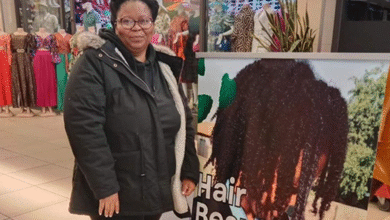Leather Legacy: The Rise of Azishenism Culture by Sebogodi Malefetsa
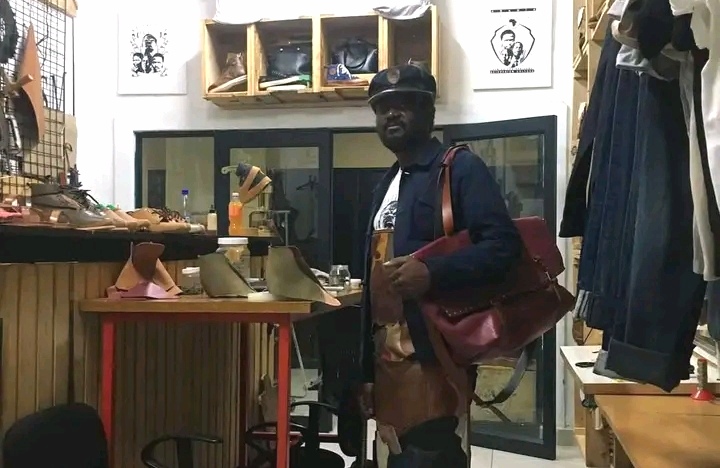
Leather Legacy: The Rise of Azishenism Culture by Sebogodi Malefetsa. When Sebogodi Malefetsa founded Azishenism Culture, rooted in his own leatherwork studio, Sebogodi House of Leather, he transformed a childhood need into artisan excellence. His journey shows how creativity, minimalism, and deeply personal stories can give birth to a brand that resonates across township boundaries and beyond.
Turning a Broken Bag into a Business Vision
Sebogodi’s story begins in Khutsong. As a child, he carried a broken bag to school because his family could not afford a new one. Rather than surrender, he built his own. That moment sparked a passion for leather design, a passion that led him to drop out of fashion college in 2019 due to financial hardship but also paved the way to found Azishenism Culture. His early experiments turned into handmade belts, bags and shoes, all with a focus on simplicity in design and superior leather quality.
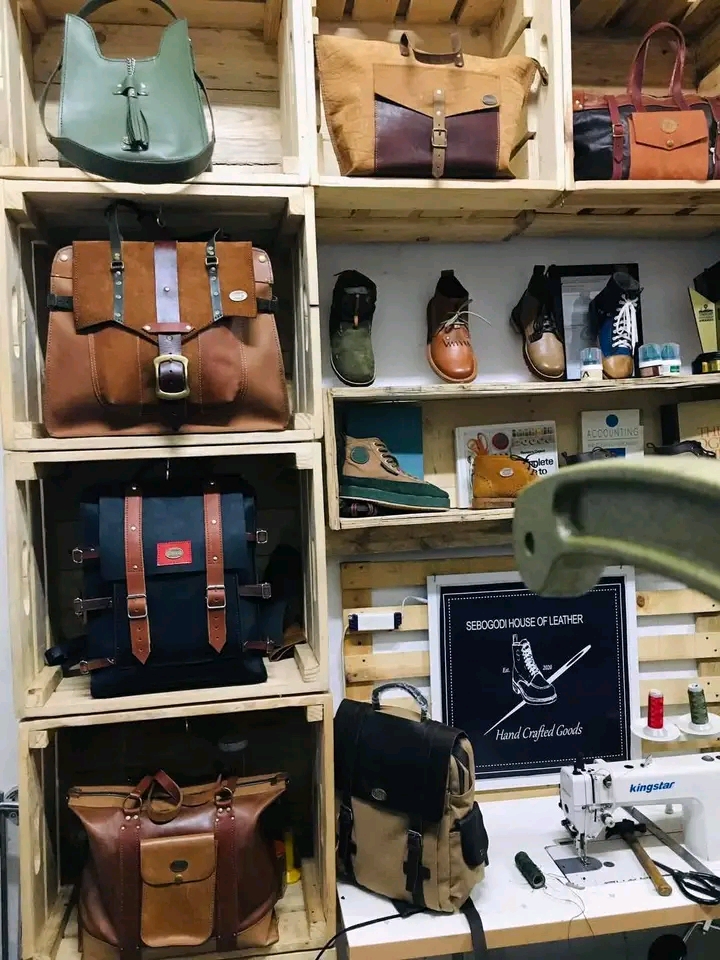
Crafting a Unique Style with Local Authenticity
Azishenism Culture thrives on three core principles: clean minimalism, perfect finish, and 100 percent South African leather. Sebogodi’s products, custom clothing, shoes, bags and belts, are handcrafted from scratch. Each piece reflects his belief that less is more and that heritage materials demand craftsmanship. His studio at Maboneng Lifestyle Centre became the physical embodiment of this vision.
This authenticity informs the brand’s aesthetic and its appeal. Customers are drawn to pieces that feel both personal and perfectly executed.
Growing Visibility Through Community and Collaborations
Azishenism Culture first made waves locally in Khutsong, but growth came when Sebogodi leaned into storytelling and strategic exposure. Features in Vutivi Business News and partnerships via Gauteng Enterprise Propeller (GEP) highlighted the brand’s township roots, design quality and economic potential.
Social media, especially Facebook and Instagram, shares his creative process, photos of raw leather being cut, early prototypes and final products. That transparency built trust and allowed the brand to stand out in a crowded artisan market.
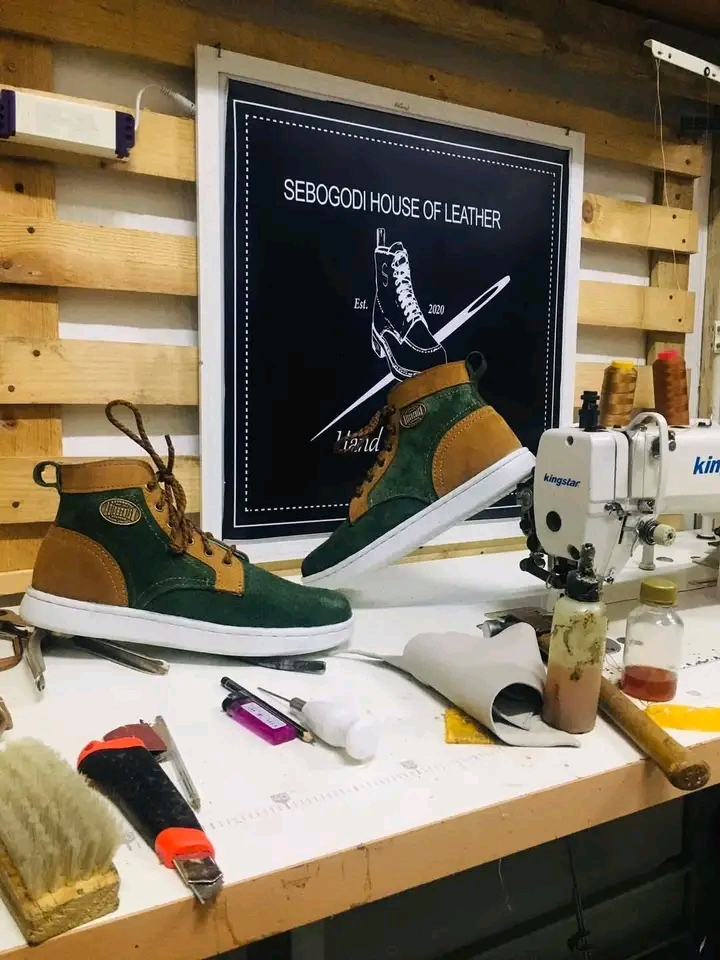
Key Milestones That Mark Growth
- Founding Sebogodi House of Leather: The hands-on studio where each product starts. Powered by craftsmanship, not capital.
- Opening a studio at Maboneng Lifestyle Centre: Gave Azishenism Culture city visibility and credibility in Johannesburg’s design community.
- Recognition and support from GEP: This partnership gave resources and exposure to scale production and retail.
- Expanding product lines: Custom leather shoes, fashions, belts and bags all handmade in-house. This range resonated with consumers seeking artisan quality.
These milestones show a progression from local maker to acute artisan brand with broader consumer reach.
Overcoming Constraints with Creative Resilience
Sebogodi’s journey was far from seamless. Dropping out of college left him without formal training or funding. Yet he persevered by refining his craft, sourcing raw leather affordably and working alone to control quality. His minimal setup forced focus, only pieces he could handcraft, maintain control over and personally back.
Furthermore, township branding came with perception challenges. He overcame this through local pride messaging: “100 percent South African leather hide.” That phrase became both a quality seal and a brand statement, turning location from limitation into asset.
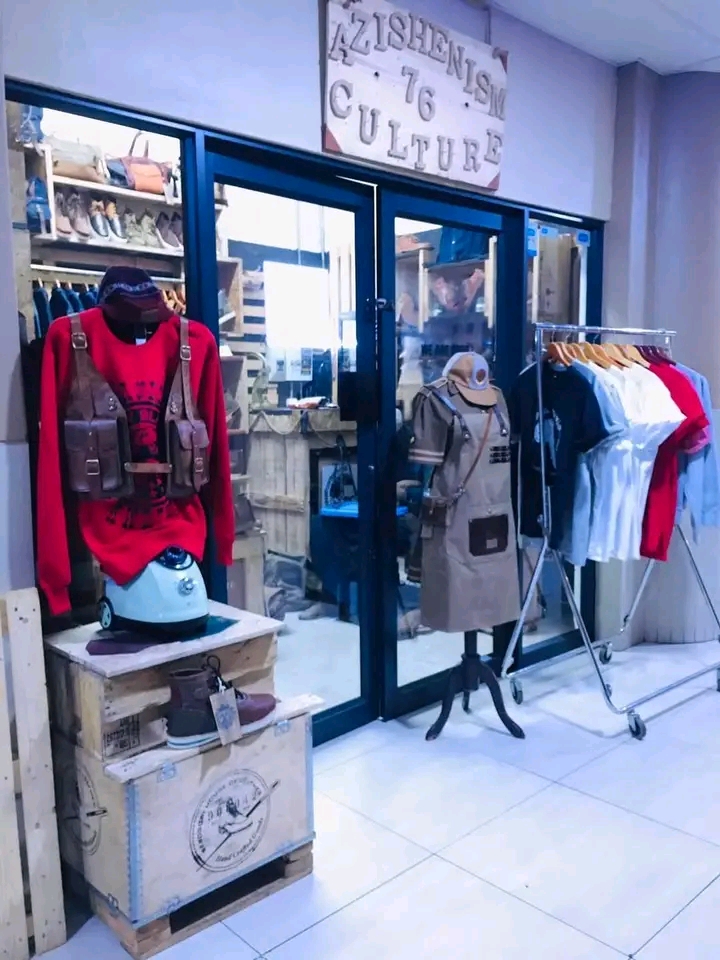
Innovation Through Simplicity and Collaboration
Innovation in Azishenism Culture does not come via tech, but via collaboration. The brand has produced custom manufacturing for multinational brands under contract, bringing global standards into his small studio. That unique service offering helped fund growth while expanding reach through B2B commerce.
Products rely on silkscreen artisan techniques and leatherwork expertise, with bespoke orders tailored from a photo or concept, a customer-led model that reduces inventory waste and emphasises craftsmanship.
Actionable Lessons for Aspiring Entrepreneurs
- Turn personal hardship into inspiration. Sebogodi transformed a broken school bag into a visionary business foundation.
- Craft authenticity through simplicity. His minimal design and 100 percent local leather become signature differentiators.
- Use storytelling and place-based branding. Leveraging township roots gave the brand an origin story and purpose.
- Partner for spread and scale. Support from GEP and partnerships with retailers helped refine operations and visibility.
- Control quality through focus. Starting small and handcrafted built brand reputation before expansion.
- Offer B2B opportunities as well as direct sales. Contract manufacturing helped widen revenue streams sustainably.
- Leverage social media with process transparency. Sharing creation stages deepened customer trust and engagement.
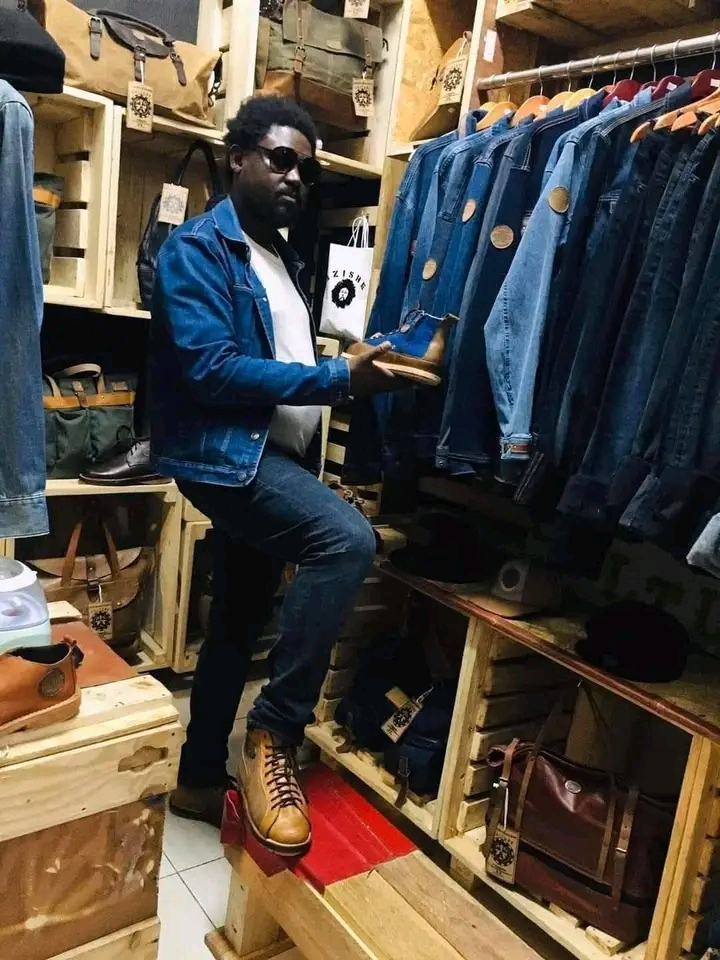
A Leather Brand with Purpose and Reach
Today Azishenism Culture stands as a handcrafted leather artisan label born from township roots yet serving discerning customers in Johannesburg and beyond. Sebogodi Malefetsa shows that raw talent, relentless focus and clarity of vision can forge a brand that withstands competition.

